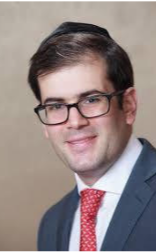
In today’s COVID-19 pandemic environment, with all its risks, complications and regulations, skilled nursing owner-operators may find themselves with a desire to sell — the impulse higher than it would have been in the absence of a significant global, health crisis.
Whatever motivates owners, and no matter which particular demographic or corporate category they fall into, they share a common desire: They all want the best possible price for their property.
But while a solid majority of independent owners may be proficient caregivers and first-class facility managers, they may not be quite as good or experienced at buying and selling — or at “wheeling and dealing.” This may be especially true of smaller-scale owners operating one or two facilities.
A seller doesn’t want to give a buyer any reason to reduce their offer. Here are three ways sellers can avoid sale price slippage.
1. Have an audited financial statement in hand.
Sellers must tap the services of an experienced accountant or back-office management company proficient in senior care to assemble a financial statement that presents important information in the way that buyers want and expect to see it, both on the revenue side and on the expense side. Unless an owner has recently secured a loan, it isn’t uncommon for a facility to not have a standard, audited financial statement. While some states require such a statement, most do not. Some owners mistakenly assume their tax form will tell the buyer all the financial information they might wish to know. That’s not so. Remember, the format of a tax return is a standardized boilerplate designed for broad use across hundreds of different industries. It’s not intended to offer a detailed picture of a nursing facility’s financial state.
An audited financial statement provides such a picture. It breaks down expenses and revenues for each department. It identifies payors. And it presents the property’s financial data on a cash basis or on an accrual basis.
Also, occasions may arise when an owner has, at some point, used a company car or a company credit card for some personal expense. To properly evaluate a balance sheet, sellers must get an accurate and clear-eyed idea of whether facility-related expenses were ever used in his way. This helps the seller, too.
2. Ensure a licensed administrator and director of nursing will remain in place post-sale.
It’s in the best interest of both a seller and a buyer — as well as that of staff and patients — to execute the transaction on a turnkey basis. A succession plan will ensure a facility can continue to operate in essentially the same fashion on the day after ownership changes hands.
Thus, to help ensure continuity, it’s not uncommon for the owner to stay on in a consulting capacity for perhaps a period of six months after the property sells.
One key to a seamless succession is for the seller to ensure the director of nursing and administrator are both competent enough to continue in their capacities without the seller still here — and that they intend to stay on, even after a sale.
If a seller fails to create an effective succession scenario, the prior owner may find himself or herself constantly peppered with questions and requests for assistance long after the sale. A clumsy transition may even lead to layoffs or curtailment of services. Filling these two positions with long-term, qualified individuals is essential.
3. Keep all staff — especially senior-level employees — up to date on regulatory compliance.
At the state and federal levels, regulations are constantly changing in the skilled nursing sector. Medicare payment rules, for example, are regularly modified, as are state Medicaid plans. And policies to protect against COVID-19 infection can change multiple times within a single week.
That’s why, before a sale occurs, sellers must be certain that facility staff is well trained to deal with these changes. If not, the seller will be forced to make up the cost of that training shortfall, and will thus have a rationale to buy the site for a lower price.
It is both likely and understandable that an independent owner-operator will have more expertise in facility management than in finance or commercial real estate. When and if a day arrives when it’s time to sell, an owner will be certain to maximize the sale price by attending to these three imperatives.
Nachum Soroka is vice president of lending for the Healthcare Group at Brooklyn, NY-based Eastern Union, one of America’s largest commercial real estate finance companies. He advises owners and operators of skilled nursing and assisted living facilities nationwide on a full range of real estate finance matters.




